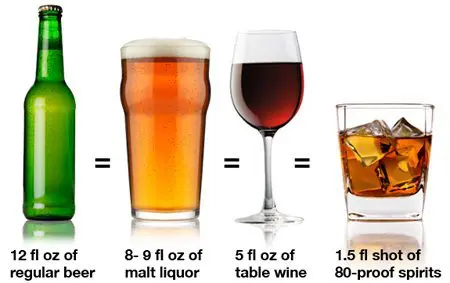When thinking of water sources and separating good from bad, city water is usually the type labeled as less than stellar, while the alternative, well water, is often thought to be a clean and safe choice if no known ground contamination is present, but is that assumption misplaced?
Is well water safe for babies?
Sadly, even ground water that is delicious, pure, and safe for adult consumption can be dangerous to a formula-fed baby. Well water can contain naturally occurring contaminants including microorganisms, nitrates, radionuclide, radon, heavy metals, and fluoride.
Nitrates:
The most commonly seen issue with well water safety in regards to infants is nitrate content. Nitrates are a natural byproduct of human and animal waste. They are also found naturally deposited in some soils and are commonly added to fertilizers as well. Excessive nitrate exposure can cause a form of blood poisoning in infants also known as Blue Baby Syndrome. Blue baby syndrome can be fatal if left untreated. A baby that has a blueish tint to his or her skin or shows other signs of poor oxygen saturation should see a doctor immediately. As nitrate exposure can also be dangerous in-utero, it’s recommended pregnant women have their well water tested.
Microorganisms:
Bacteria, viruses, and parasites can also find their way into well water. In some cases, even adults can be affected by such contaminants causing symptoms ranging from severe food poisoning to mild digestional upset. Naturally, as infants often have weaker immune systems and less developed digestive systems, they are more prone to adverse effects.
Radionuclide and Radon:
These two are more commonly seen in areas where the soil has high concentrations of uranium or radium, both of which are naturally occurring.
Radionuclide and Radon have no immediate effects, but do increase the risk of certain types of cancer and very high exposure can cause kidney failure. This risk is increased in infants. Contaminated drinking water can also increase the levels of radon in your home’s air supply. Inhaled radon significantly increases the risk of lung cancer in both children and adults.
Heavy Metals:
A high concentration of heavy metals in well water is unusual, but can occur. The location of your well may increase these risks. Metals that are most commonly found in well water when contamination occurs include arsenic, cadmium, chromium, copper, iron, lead, and selenium. Most of which are naturally occurring in soil.
Arsenic: Homes near older fruit orchards pose a higher risk of arsenic contamination. Effects include increased risk of various cancers, skin discoloration, blindness, paralysis, numbness of the feet and hands, and digestional and stomach upset. Arsenic can be fatal to a baby.
Cadmium: Found in natural deposits and also applicable to some industrial uses, cadmium can cause kidney damage with long-term consumption.
Chromium: Chromium is a naturally occurring element which is even found in the human body. It is harmless in small doses, and is even included in many vitamin supplements, but in high doses chromium can cause allergic dermatitis. As a baby’s body is far smaller than an adults, levels would not need to be as high to cause negative effects.
Copper: Copper is another naturally occurring element found in higher concentrations in some soils. Copper in small concentrations is harmless. Higher concentrations from soil or from piping in the home eroding could cause digestional and stomach upset.
Iron: Iron also occurs naturally or can find its way into drinking water from erosion of man-made structures. Iron, like copper, is safe and actually necessary in small doses. High concentrations of iron can cause depression, respiratory issues, coma, heat failure, and even death, however, these concentrations are nigh impossible in well water. Well water with iron content is actually considered to be beneficial as many pregnant women and children are prone to anemia or iron deficiency. It can cause some nasty sink and tub stains though. If you notice orange staining on your porcelain, you may have high iron.
Lead: Lead is most commonly introduced into drinking water as a result of eroding pipes in your home and not from the soil. Lead can cause serious developmental delays in infants and children. It may also cause kidney failure and high blood pressure in adults. This is mostly a concern in older homes.
Selenium: Yet another naturally occurring element, large doses of selenium can cause the loss of fingernails and hair, numbness in the hands and feet, and circulatory issues.
Fluoride: You may be wondering why this one makes the list as fluoride is often added to city water to promote dental health, but high levels of fluoride consumption can cause bone disease and teeth mottling in children (teeth stained white or brown in spots). Some research suggests it may also cause developmental issues. You might notice infant toothpaste is often fluoride free for this reason.
Long story short, while in most cases well water is perfectly safe for all ages—and often delicious—it’s always a good idea to have your water tested or retested if it has been awhile before formula feeding your baby with it. In many cases a simple home test kit is sufficient.




